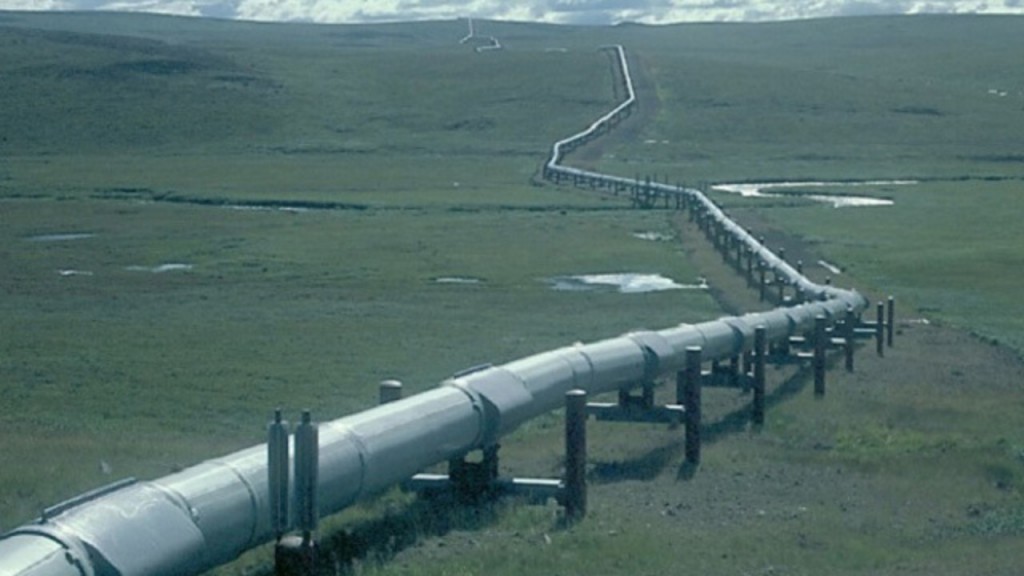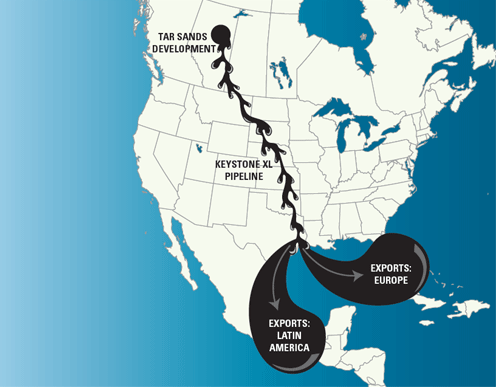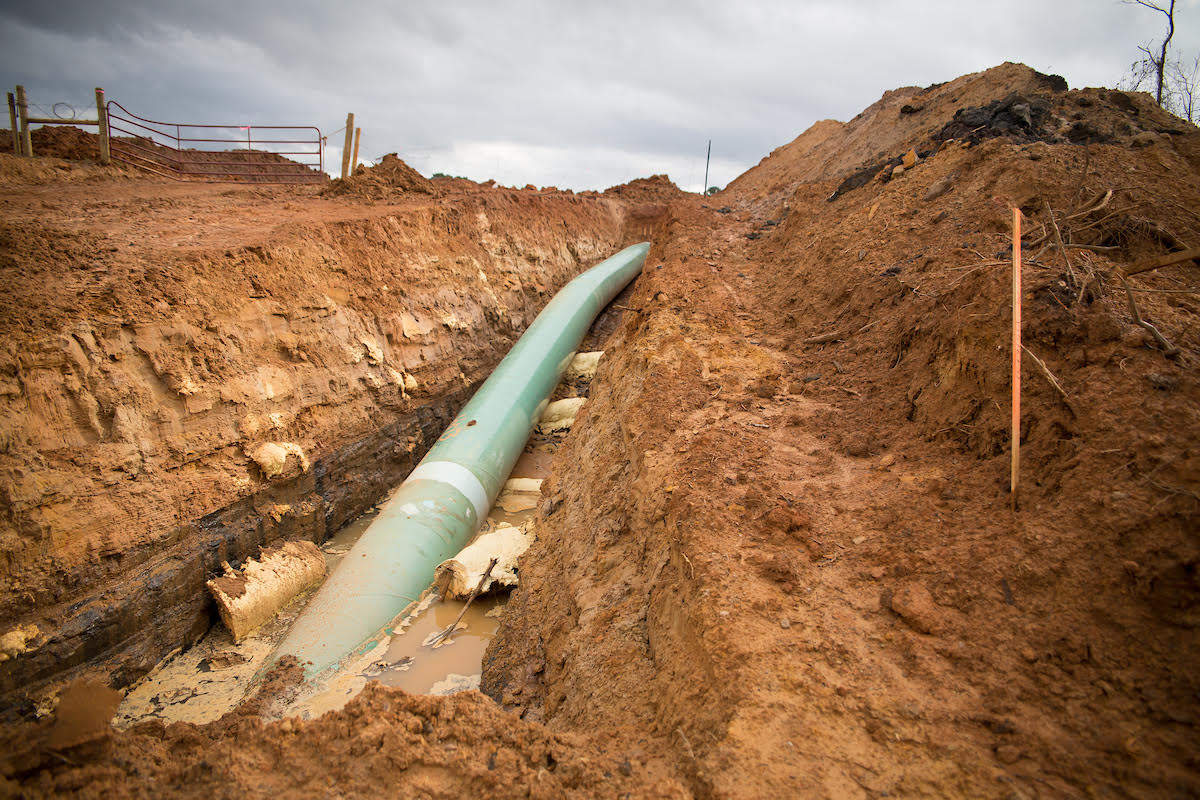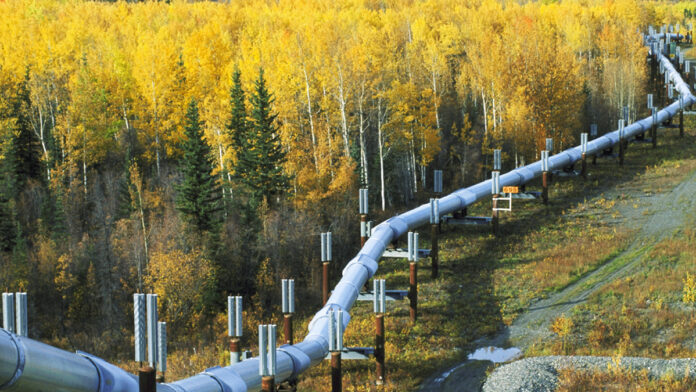The U.S. State Department gave tacit approval of the Keystone Pipeline last week through their analysis that the pipeline would not add any appreciable amount of environmental damage to the United States or world climate. The 2,000 page report essentially gives President Obama the go ahead to approve the much debated pipeline deal, against the wishes of many of his party stalwarts who vigorously oppose the pipeline.
The 1,700 mile Keystone Pipeline would bring oil from the Alberta oil sands in Canada to U.S. refineries on the Gulf Coast. The Congressional Research Service has estimated that crude from the Canada oil sands could produce 20 percent more planet warming gases into our atmosphere than the amount U.S. refineries currently produce.

The State Department asserts that denying the pipeline would not stop the oil from getting to the U.S refineries by other means of transportation; all of which produce a meaningful amount of environmental hazards. The gist of the report was that the Canadian oil sands are going to pollute America regardless of the manner of transport. The oil will move through the United States either by rail, truck, vessel or pipeline – which will EACH have a significant impact on climate change and the environment.
“Approval or denial of any one crude oil transport project, including the proposed project, remains unlikely to significantly impact the rate of extraction in the oil sands,” according to the State. Their finding opens the door for Obama to approve the pipeline that he has been vilifying through his election campaigns.

The President is under immense pressure to approve the pipeline from Canadian officials, union leaders, members of Congress and the worlds largest corporations. Could Obama be selling out to big business and big politics? Environmentalists are outraged. “Keystone is fundamental to the industry’s plan to triple production in the sands,” said Danielle Droitsch, project director for the Natural Resources Defense Council. “The pipeline will produce the equivalent of putting 6 million new cars on the road,” Droitsch said.
“It is a total myth that tar sands expansion will continue to grow even if Keystone XL were rejected,” she said. “It is not in the public’s best interest to expand America’s dependence on tar sands. It undermines our effort to move to clean energy and fight climate change.”
On the other side of the issue is Republican House Speaker John Boehner who proclaimed in a written statement; “Today’s report again makes clear there is no reason for this critical pipeline to be blocked one more day, After four years of needless delays, it is time for President Obama to stand up for middle-class jobs and energy security and approve the Keystone pipeline.”
The report concluded that fundamental changes in the world oil market, not denial of the Keystone pipeline, would be needed to significantly impact the rate of production of the oil sands crude.
Senate Energy Committee Chairman Ron Wyden has been critical of the pipeline deal and has questioned how much of the oil would be used in the United States and how much would be exported. “The State Department needs to explain how it is in America’s national and economic interests to facilitate Keystone XL’s completion, especially if the pipeline is simply a conduit for oil and refined products to go elsewhere that makes the United States less energy secure and drives domestic gas prices higher,” the Oregon Democrat said.

What happens next:
There will now be a 45-day period for comments after the State Department’s analysis is formally published, next week. The State Department will then review the comments and create a final environmental impact report. After that, The State Department will decide if the project is in the national interest of the United States. Obama has made it known that he will have final say over the pipeline.
Although the pipeline seems to be stalled in Congress, business ventures are moving forward, clearing land and kicking Americans out of their homes through extortion, payoffs and persecution. Just ask Gage Cordova what he thinks of big oil. Mr. Cordova is an Army veteran and Texas landowner who is being pushed off his families land and out of his home to make way for the pipeline. He was told by a Trans Canada representative that he had no choice but to give up his property.
He said ‘here’s the deal. Either you sign what we put in front of you — take this offer — or we’re gonna take you to court. You’re gonna have to get lawyers, you’re gonna have to pay all the court costs and we’re gonna come in here anyway. We’re gonna take this property, no matter if you like it or not.’ That’s exactly how he presented it … We had that land for 37 years and we just wanted to live our life out peacefully.”
